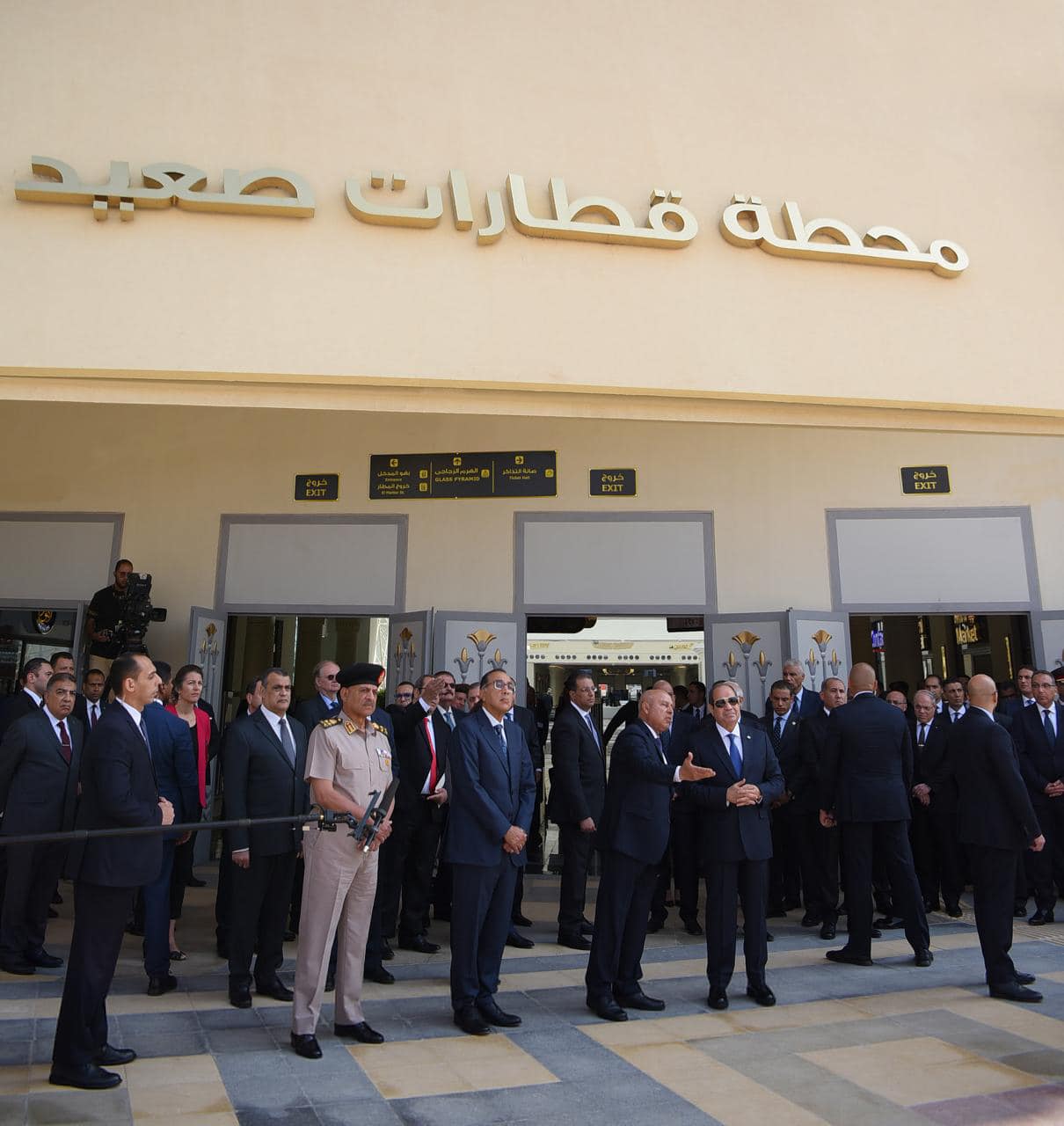
Egypt's President Abdel Fattah El-Sisi delivers remarks during the opening of the Bashteel Railway Station in Giza, October 12, 2024 - Still image/Presidency
CAIRO – 12 October 2024: President Abdel Fattah El-Sisi has highlighted the pressing need to expand industry localization to ease the growing burden of high import expenditures in foreign currency.
Sisi commented on figures showing significant costs incurred by imported goods over the last decade, amounting to multi-billion dollars for the state. He emphasized that tackling Egypt's foreign currency challenge hinges on ramping up domestic production of these items.
The president called upon investors and industry stakeholders to play a pivotal role in the localization of these goods, a move that would not only create job opportunities but also bolster the country's gross domestic product (GDP).
Addressing the audience, Sisi stressed, "If we aim to overcome the dollar challenge, a considerable portion of these goods must be manufactured within Egypt, a task that is by no means simple."
He reiterated the government's unwavering support for such endeavors to expedite the local production of these essential goods.
President Sisi made these statements while inaugurating Giza's Bashteel Railway Station, Egypt's largest railway hub, designed to cater to travelers commuting to and from Upper Egypt.
Sisi emphasized the state has been very keen on the full development of the railway sector, describing such mega projects as "essentials that could never be ignored or delayed" and as initiatives that "only put the state on the track."

DOLLAR-HEAVY IMPORT BILL
Government data viewed in the presence of Sisi indicates that from 2014 to 2023, Egypt imported around $2.6 billion worth of railway supplies, such as locomotives and tracks, and around $45.8 billion for various transportation modes, including buses and other vehicles.
Furthermore, imports of diverse products like cheese, furniture, jewelry, ceramics, chocolates, handbags, footwear, sports equipment, perfumes, shampoos, bicycles, motorcycles, and apparel totaled around $5.6 billion.
President Sisi posed critical questions, asking, "Are we to tell people we are incapable of establishing factories to produce what we need?"
He highlighted specific imports, mentioning that Egypt spent $440 million on perfumes and deodorants, nearly $400 million on chocolate, $235 million on ceramics, and over $500 million on aluminum foil.
Regarding vehicle imports valued at $25 billion, Sisi questioned the rationale behind the inability to establish local automobile manufacturing companies for vehicle production within Egypt.
Egypt has been diligently working to promote industry localization and enhance its foreign currency reserves amid challenges stemming from foreign currency shortages in recent years, aggravated by significant revenue losses in the Suez Canal due to tensions in the Red Sea region.
Comments
Leave a Comment